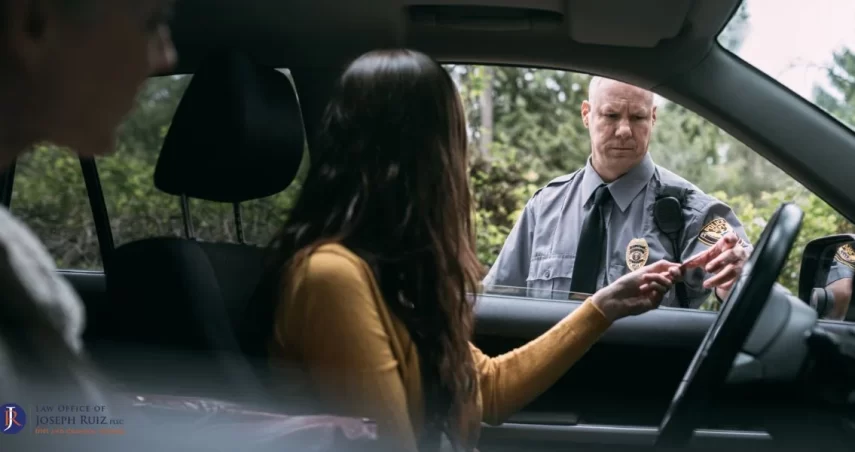Schedule a Consultation
How Much Does a DWI Cost in Texas?

“How much does a DWI cost in Texas?” This is a question many first-time offenders have. There are many factors that affect the cost of resolving a DWI charge. One way you can reduce the potential penalties that you face after being arrested for a DWI is by hiring an experienced criminal defense attorney who has helped clients receive favorable resolutions to their criminal charges. Vehicle impound fees, attorney fees, and court costs are just some of the expenses you’ll face if charged with a DWI.
Vehicle Impound Cost
Following an arrest for DWI, you will be taken to jail for processing, and your car will likely be towed at your expense. The cost of retrieving your car will vary depending on the tow company involved. Impound lots charge a fee for the car towing, an impound fee, and a daily storage fee.
Lost Wages
Unless you have a fair amount of expendable paid days off, you may experience lost wages as the result of a DWI. Your initial arrest may mean time missed from work until you can post bail. You will potentially lose wages as you attend court hearings and other requirements as part of your criminal case.
Court Fees
If the defendant is convicted of a DWI, the court costs associated with the case will be passed on to the defendant.
Court-Imposed Fines
Anyone convicted of a DWI faces a potential fine of up to $2,000. A second conviction can lead to a fine of up to $4,000. Aggravating factors can increase this fine amount. Intoxication assault, or manslaughter are considered potential aggravating factors. Driving under the influence with a child passenger automatically opens the possibility of a $10,000 fine and jail sentence of up to two years.
Texas Driver Responsibility Program Fees
A conviction for driving while intoxicated can often lead to a suspended driver’s license. Anyone who had their license suspended may have to pay a fee to the state as part of an annual surcharge for the reinstatement of driving privileges.
Alcohol Education Fees
Anyone convicted of a DWI or sentenced to probation as part of a plea bargain will likely be required to take some type of alcohol education course. Repeat offenders may be required to take an intervention program. The classes can take many hours to complete and require an upfront class fee.
Interlock Ignition Switch
As part of sentencing or probation, a judge may order someone charged with a DWI to have an interlock ignition device installed on their vehicle. Once this device is installed, the vehicle will only start once the driver blows into the device. The courts pass the cost of this program to defendants, who will have to pay a monthly fee to maintain the device.
Bail Cost
A DWI is a criminal charge. For most defendants, it is a misdemeanor crime. Rather than keeping defendants in jail, most non-violent offenders are given the opportunity to stay out of jail if they post bail. Bail is a form of collateral that ensures the defendants show up for court dates. Once a criminal case is settled, the defendant can retrieve their bail from the county.
Either the defendant can post bail, or a bail bond company can post the full amount in return for a set percentage that is non-refundable. The bail amount varies from case to case. Someone with past criminal convictions will likely have a higher bail amount set. Counties can set bond conditions. For example, a DWI defendant may be required to submit to drug testing as a condition of their being given bond.
Motor Vehicle Insurance
You can expect your automobile insurance to go up considerably if you are convicted of a DWI. Insurance companies equate driving while intoxicated as a reckless act that makes those drivers a liability. One way you can fight a DWI conviction is by hiring an experienced criminal defense attorney who can investigate the facts of your case and work to have your charges lowered or dropped.
FAQs
Q: How Much Is Your First DWI in Texas?
A: Maximum penalties for a first-time DWI are set by state law. The maximum fine you can face is $2,000, and the maximum jail time you can serve is 180 days. Judges have great leeway in what a defendant ultimately pays and serves. The minimum jail sentence for a conviction is three days.
Q: Is Jail Time Mandatory for the First DWI in Texas?
A: Anyone convicted of a DWI in Texas faces a three-day mandatory jail sentence unless they are granted probation. Depending on the facts of your case, prosecutors may seek a longer jail sentence. First-time offenders who do not have aggravating factors involved in their case generally do not face lengthy jail sentences.
Q: How Much Is Probation for a DWI in Texas?
A: The terms of your probation depend largely on the circumstances of your case. Probation is determined by the terms you agree to during the plea bargain process or what a judge orders during sentencing. First-time offenders will likely have to follow certain requirements before the probation period ends.
Q: Is DWI Worse Than DUI in Texas?
A: The criminal penalties for a DWI are generally more severe than a DUI. DWIs are reserved for adults over the age of 21 who were pulled over while under the influence of some type of intoxicating substance. DUIs are for people under 21 who were pulled over while under the influence of alcohol.
Schedule Your DWI Cost Consultation Today
One night of overindulgent drinking can have long-lasting consequences. Being charged with a DWI can come with the prospect of serious financial penalties. If you are facing DWI charges and want to reduce the potential cost associated with a conviction, you can work with a DWI attorney who will protect your rights.
With professional legal representation, you can reduce the potential costs associated with a DWI conviction. At the Law Office of Joseph Ruiz, PLLC, we will put our experience to use by giving you strategic legal counsel until your case is resolved. Reach out to us today to schedule your consultation.




